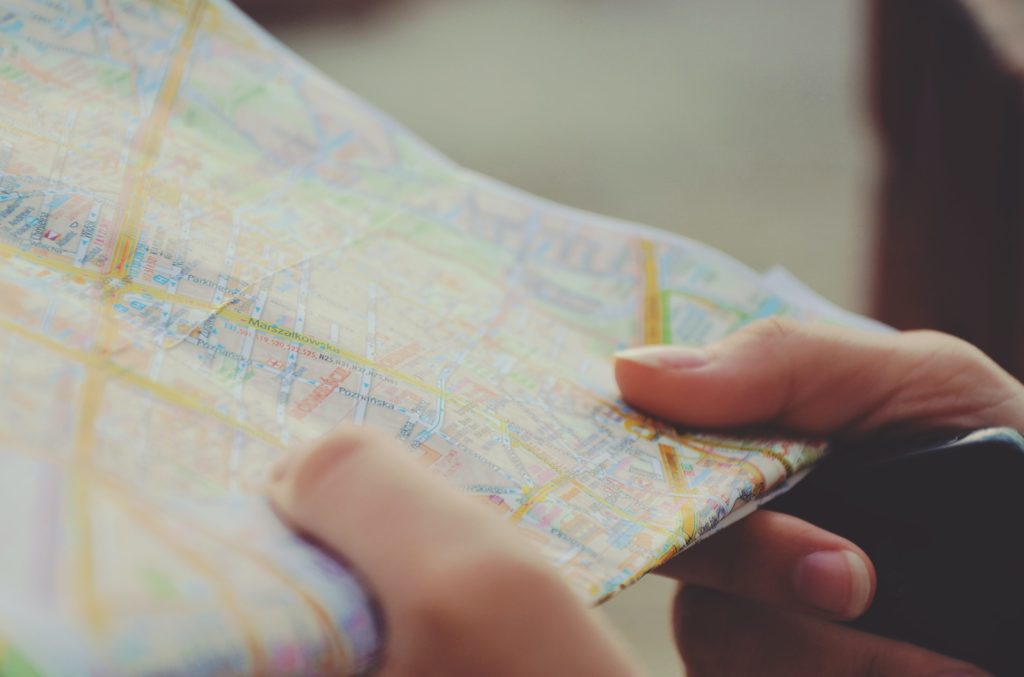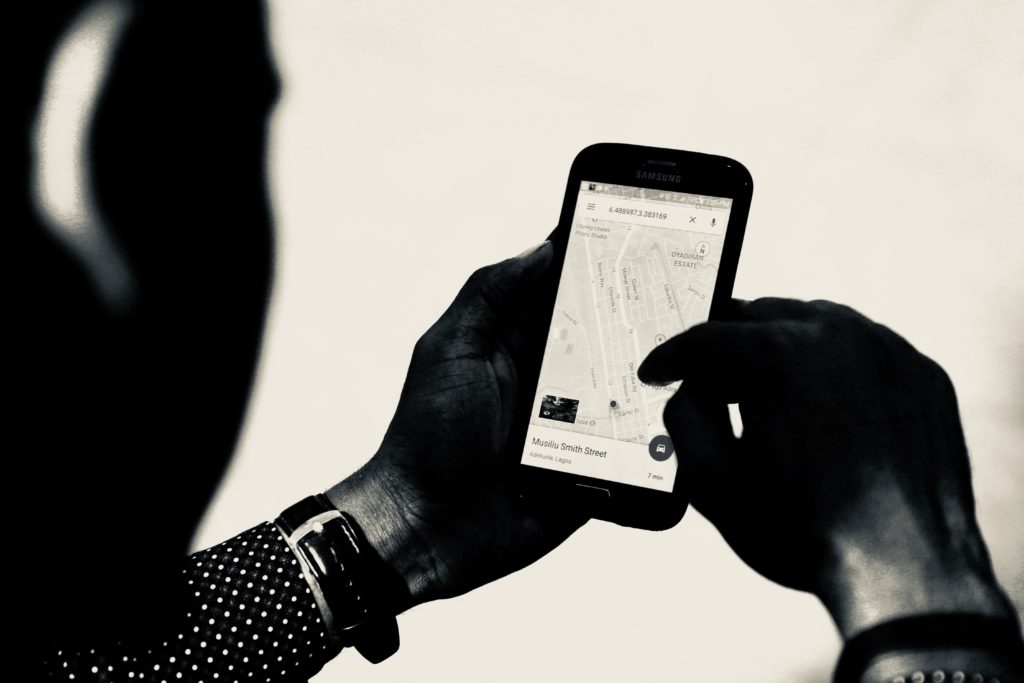Interest in location intelligence is growing. Location intelligence refers to a business intelligence tool that connects geographic information from a variety of data sources, including GIS and aerial maps, to business data and is often confused with Business Intelligence.
In this article, firstly we will explain about the Location Intelligence definition and how it works, to create the fundamentals of the topic.
Later there is a brief comparison between Location Intelligence (LI) and Business Intelligence (BI) to shed more light on how these two concepts are different from each other.
After covering all the basics, the topic of Major Use Cases Of Location Intelligence is introduced for better comprehension of the subject.
And lastly, the concept of Location Intelligence in healthcare is discussed and the major impacts of LI in the healthcare sector is introduced.
After reading this article, as a healthcare business owner, you will be able to make better decisions to more scientifically expand and develop your business according to the most recent trends in the business world.

What is Location Intelligence?
Location Intelligence (LI) is the aggregation and analysis of multiple geospatial data sources which are turned into strategic insights to solve a variety of business challenges.
How can that be possible?
This technology has the potential to compile and enrich different types of large data sets to be used for deep geospatial analysis, such as GPS data, transactional data, socio-demographic data, footfall traffic or selling data points.
The information is then presented on a simple, map-centric interface that allows users to visually conceptualize the factors influencing their business success at different locations.
How Does Location Intelligence Work?
Location Intelligence is an intuitive technology that allows you to access a variety of data such as socio-demographic data, disposable income, and more to understand how your business is affected by location.
It is an interactive technology that enables you to create maps and visualizations in real-time so you can filter data and see just what matters.
This allows the identification of patterns and trends that relate to your business needs, making your strategic decisions more successful.

Geospatial business intelligence is interdisciplinary and emerges from the convergence of three distinct fields — Artificial Intelligence, Business Intelligence, and Geographic Information Systems technology.
This integration has allowed businesses to turn location data into useful insights, solving numerous use cases like optimizing the productivity of the store network, carrying out sales predictions, and selecting location assets to support a sustainable expansion strategy.
Location Intelligence (LI) vs. Business Intelligence (BI)
We explained about the definition of Location Intelligence and talked about various fields of Geospatial business intelligence, two of which are Business Intelligence (BI) and Location Intelligence (LI).
These two terms are often confused with each other, that is why in this section we will briefly discuss key different points between Business Intelligence (BI) and Location Intelligence (LI).
1. Focus of Data
BI is more focused on temporal details, with maps being used occasionally, on the other hand, LI revolves around the analysis of location.
2. Analysis Method
BI platforms demonstrate and visualize pre-processed result sets on a map; however, LI allows several dynamic data layers to be analyzed iteratively.
3. Actions of A Typical User
Users are mostly addressing zooming, scanning, and printing in BI. However, in LI, all the users are discussing evaluating, comparing, forecasting, and publishing interactive results.
4. Answered Questions
BI focuses on where things are and what has happened to a company.
On the other hand, LI is more focused on the why behind these issues.
Why did sales increase by 20 percent in these locations? How is the revenue affected by weather conditions and foot traffic?

What Are the Major Use Cases of Location Intelligence?
One usually thinks about geomarketing (i.e. geo-targeted advertising) or site selection (i.e. planning QSR or store locations) when the terms location analytics is discussed.
However, we see a new wave of LI use cases emerging as economies and businesses grow and evolve.
From Electric Vehicle Charging Point Rollout, to 5G Network Deployment to IoT drone analytics, this can be anything. To enhance their existing BI and Analytics capabilities, every single sector is adopting LI to be more in sync with the most recent changes in the business world.
1. Modeling Catastrophe
In an increasingly unpredictable environment, insurers use climate-related data sources to manage their resources efficiently, from disaster forecasting to optimizing policy selection power.
2. Monetizing Data
Monetizing “data exhausts” has become a lucrative business for a variety of real estate, financial services and beyond companies.
Businesses can go beyond internal monetization for marketing and operations, by creating data items that can be marketed to B2B customers.
3. Environmental Management
To minimize environmental degradation, monitoring environmental shifts and predicting future changes through spatial data is crucial. Whether it is the task of analyzing air pollution, managing disasters, tracking the spread of forest fires, or managing wastewater, environmental management is truly making a difference in how businesses perform environmentally.
4. Detecting Fraud
Realizing the spatial context of fraudulent insurance claims or financial transactions is critical to detecting and predicting trends, and thus alerting your company in advance to reduce the effect on your bottom line.
5. Geomarketing
Whether you plan and measure the effectiveness of Out of Home (OOH) or Mobile Advertising campaigns, it is totally necessary to use offline data to understand the “real-world” behavior of the consumers.
6. Healthcare analytics
The location of a patient has a direct bearing on their health.
Whether it is prevention of disease or selection of clinic locations, including spatial data in the health care research, can have a dramatic impact.
7. Indoor Analytics and Mapping
Use Location Intelligence indoors to accelerate revenue, boost operational efficiency, and enhance customer experience in malls, airports, and other large facilities-making the most of WiFi and GPS data.
8. Location Selection
Whether it is opening, closing, repurposing or relocating locations, it is important to use Spatial Data Science to conduct an efficient market analysis to make decisions around brick and mortar locations.
9. Mobility Planning
Businesses are able to make better infrastructure decisions, reduce traffic congestion, and speed up the response to incidents through location-driven solutions in a city.
10. Network Creation
Optimizing telco and utility networks is critical to getting the right mix of product and service while taking into account both market requirements and new location data streams that help to understand consumers at a deeper granularity.
11. Risk Analysis for Portfolio
The use of analytical methods with geospatial data sets to model risk to plan, underwrite, and react more quickly and effectively in insurance is a crucial part of the Spatial Risk Management Strategy of an insurer.
12. Territory Planning
Businesses are able to optimize their sales and service performance by designing and balancing their territories using more spatial data to boost productivity in sales reps and reduce operating costs.
13. Analyzing the Real Estate Market
High-quality analysis of the real estate market requires spatial data and analysis.
By using location intelligence in healthcare or any other sector, business managers are able to make better decisions regarding location selection and real estate.
14. Optimization of The Supply Chain
Reducing costs and improving visibility via spatially optimized supply chain approaches and optimizing routing is crucial to meeting the rising demands of today’s consumers.

Why Is Location Intelligence In Healthcare Built On Future Planning?
Location intelligence in healthcare is a critical tool to improve future planning processes for both public and private providers.
Improving your awareness of evolving changes in demographics and infrastructural improvements within your service area is the best way to ensure successful deployment of resources.
In this section, we will be exploring four key areas where future planning is crucial, and how location intelligence in healthcare can help improve business performance and increase revenue.
This however, is only a handful of ways location intelligence will support the planning processes for the future:
1. Cost-efficient budget allocation
Understanding where resources are most likely to be required, and where it helps to avoid costly waste, particularly in the case of perishable resources (medicines, blood etc.) will help greatly in avoiding costly waste.
This process is assisted when you can conveniently segment and visualize data related to lifestyle, socio-economic and environmental factors.
Location intelligence helps you to merge your own patient datasets with a survey, council tax band and other valuable data sets, and then automatically plot your findings on your own protected Google Maps version.
2. Quick Emergency Response
There are targets set for ambulances to arrive within 8 minutes of a call and speed is vital to saving lives.
With the help of a healthcare location intelligence to quantify drive times and envision potential possibilities for a robust dispatch network without unwanted overlaps would assist a healthcare business accomplish this essential objective.
3. Accessible Services for Vulnerable Patients
Finding out how population needs are likely to change over time can help healthcare businesses predict and deliver additional support service requirements to them.
They can achieve this on a macroscale with location intelligence, or for future consideration, they are able to highlight specific patients within a given region.
This level of insight allows healthcare businesses to ensure convenient access to services for the elderly, the disabled, and the vulnerable.
4. Commercial Placement
Location Intelligence in healthcare is also a useful tool for private healthcare providers and retailers.
Integrating this software into location planning processes enables networks of private hospitals, care homes, clinics, and pharmacies to:
- Expand into new, highly demanded areas
- Designate new equally covered territories
- Optimize existing logistics networks, or incorporate new ones
Using an innovative location intelligence system, high-street pharmacy chains can pick new locations based on footfall data analysis, and easily determine the effects of new housing or infrastructure developments in the shortest amount of time.
In a sector as vastly relied upon as healthcare, local accessibility and cost-effective budget decisions are of vital importance.
Location intelligence in healthcare will help develop the detailed geographic, demographic, and temporal understanding a business needs to intelligently deploy their resources.
How Location Intelligence in Healthcare is Revolutionizing the Industry?
Intelligent technologies in use for autonomous vehicles, public transport, and consumer travel scenarios are easy to imagine.
But technology also has its place in many other industries that you might not consider, such as for example healthcare. In reality, location intelligence in healthcare allows the industry to revolutionize its current state. Read below to understand how.
1. Maximum Operations Efficiency
With location intelligence in healthcare, you are able to see, at a glance, where all the doctors are inside the facility, as well as outside the premises. If you need to contact an on-call physician, you know where they are and for how long it will take for them to arrive.
2. Awareness for Patients
Using a mobile device and local data, patients will locate a nearby doctor who will treat their unique condition. Better yet, they can utilize a service that offers patients reviews and comments from the history of the patient.
This allows them to conduct proper research and find a health care professional who will meet their needs.
For healthcare professionals, the technology could also be reversed to show them the need and demand in a given region.
For example, an experienced cardiologist may be best suited to areas where local residents are older, or even more vulnerable to heart disease.
3. RTLS Tags for Tracking
Hospital areas are huge, which makes it difficult to track different elements and people, particularly if they are constantly moving.
From equipment and instruments to patients, where someone or something is at a given time, tracking everything is a hard task. RTLS tags, or location-based trackers, should be used to address this issue.
The uses and benefits of location intelligence in healthcare to navigate new locations have expanded beyond digital mapping purposes. The technology is now strengthening the health care systems and saving lives.


